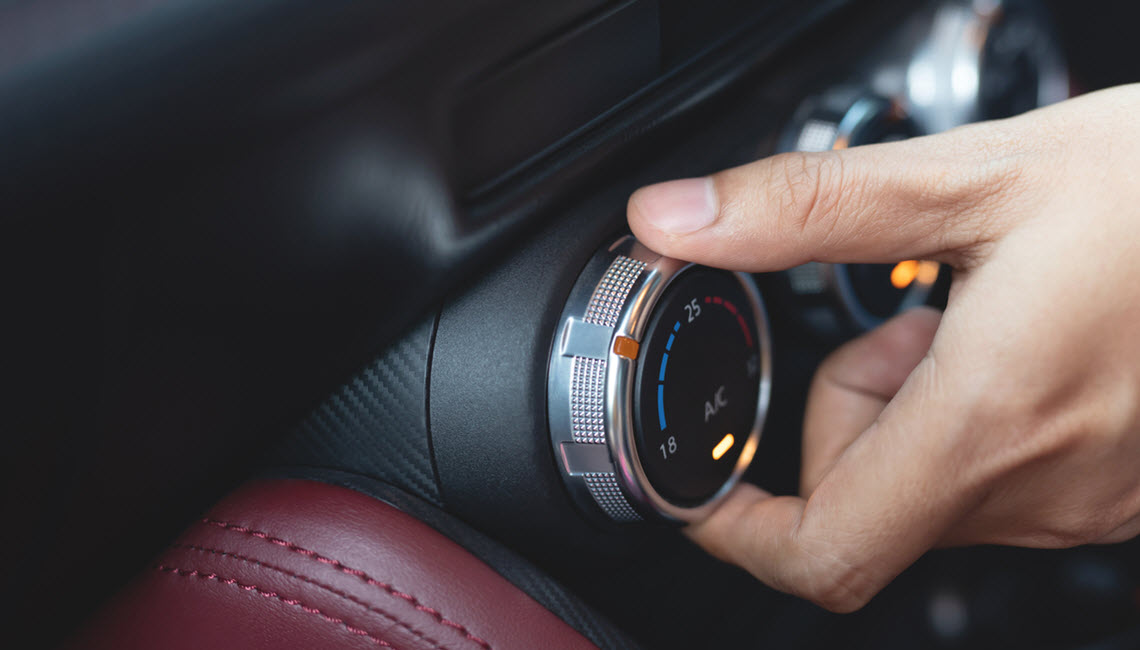
Volvo is a Swedish carmaker known for its innovative safety features, luxurious interiors, and reliable performance. The brand has been around for years and has established itself as a leading manufacturer of high-quality cars. While Volvo cars are known for their durability and longevity, they are not immune to issues with their air conditioning system.
As with any vehicle, the air conditioning system in a Volvo car plays a critical role in keeping the passengers comfortable during hot weather. However, when the AC fails to produce cold air, it can be frustrating, especially during the hot summer months. This problem can be caused by different A/C issues, from low refrigerant levels to faulty compressors, electrical problems, and clogged air filters. If left unaddressed, a malfunctioning AC system can [...]
]]>
Volvo is a Swedish carmaker known for its innovative safety features, luxurious interiors, and reliable performance. The brand has been around for years and has established itself as a leading manufacturer of high-quality cars. While Volvo cars are known for their durability and longevity, they are not immune to issues with their air conditioning system.
As with any vehicle, the air conditioning system in a Volvo car plays a critical role in keeping the passengers comfortable during hot weather. However, when the AC fails to produce cold air, it can be frustrating, especially during the hot summer months. This problem can be caused by different A/C issues, from low refrigerant levels to faulty compressors, electrical problems, and clogged air filters. If left unaddressed, a malfunctioning AC system can affect the passengers’ comfort and also cause damage to other parts of the car’s cooling system.
Cause of A/C Malfunction
Low Refrigerant Level
Low refrigerant level is one of the most common reasons why your Volvo’s AC may not blow cold air. Refrigerant is the substance that cools the air inside the AC system. If the refrigerant level is low, the AC system cannot produce cold air. Low refrigerant can be caused by a leak in the AC system, which may require a professional mechanic to diagnose and repair.
Dirty or Clogged Air Filters
Another reason why the AC in your Volvo car may not blow cold air is dirty or clogged air filters. The air filters in the AC system can get clogged with dirt and debris over time, reducing the airflow and making it difficult for the system to produce cold air. Replacing the air filters can improve the AC’s performance and make it blow cold air.
Faulty Compressor
The compressor is the heart of the AC system, and if it fails, the AC will not be able to produce cold air. Various factors can cause a faulty compressor. If the compressor is the culprit, it may need to be replaced immediately.
Blocked Condenser
The condenser is responsible for releasing the heat from the refrigerant, allowing it to cool down and circulate back into the AC system. If the condenser is blocked, it will not be able to release the heat efficiently, which can cause the AC to blow warm air. Cleaning or replacing the condenser can fix this issue.
Electrical Problems
The AC system in a Volvo car relies on electrical components such as fuses, relays, and switches. If any of these components fail or malfunction, it can cause the AC to stop working. Checking and replacing any faulty electrical components can help restore the AC’s functionality.
Broken AC belt
The AC compressor in your Volvo’s AC system is powered by a belt that connects to the engine’s crankshaft pulley. The belt drives the compressor to circulate refrigerant through the AC system. If the belt is worn, stretched, or broken, the compressor will not function properly and may lead to the vehicle blowing warm air through the vents. In some cases, a broken belt may also cause damage to other engine components. To fix this issue, a technician must inspect the belt, replace it if necessary, and check for any additional damage caused by the broken belt.
Regular maintenance can prevent common issues and prolong the life of the AC system. In addition, if you notice any of these issues with your Volvo’s AC, you should have them addressed promptly by a qualified mechanic to prevent further damage to the system. With proper care and attention, your Volvo’s air conditioning system can provide years of reliable service and keep you cool and comfortable on the road.
Bring Your Volvo to Our Experts at Glenwood Foreign Car for A/C Repairs
If you’re experiencing issues with your Volvo’s 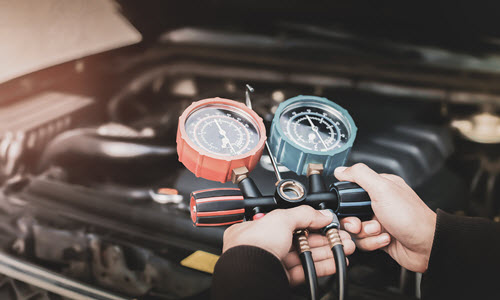 AC system and you reside in Upper Makefield Township, Yardley, Newtown, or Morrisville, PA, Glenwood Foreign Car is the place to be! We are known as a reputable repair shop that specializes in Volvo repair, and we can provide you with the assistance you need to get your Volvo working as it should.
AC system and you reside in Upper Makefield Township, Yardley, Newtown, or Morrisville, PA, Glenwood Foreign Car is the place to be! We are known as a reputable repair shop that specializes in Volvo repair, and we can provide you with the assistance you need to get your Volvo working as it should.
Our certified technicians have the knowledge and experience to diagnose and repair various AC system issues, ensuring that your Volvo is running smoothly and efficiently. If you want to schedule an appointment or you have any questions about our services, don’t hesitate to contact us now.
]]>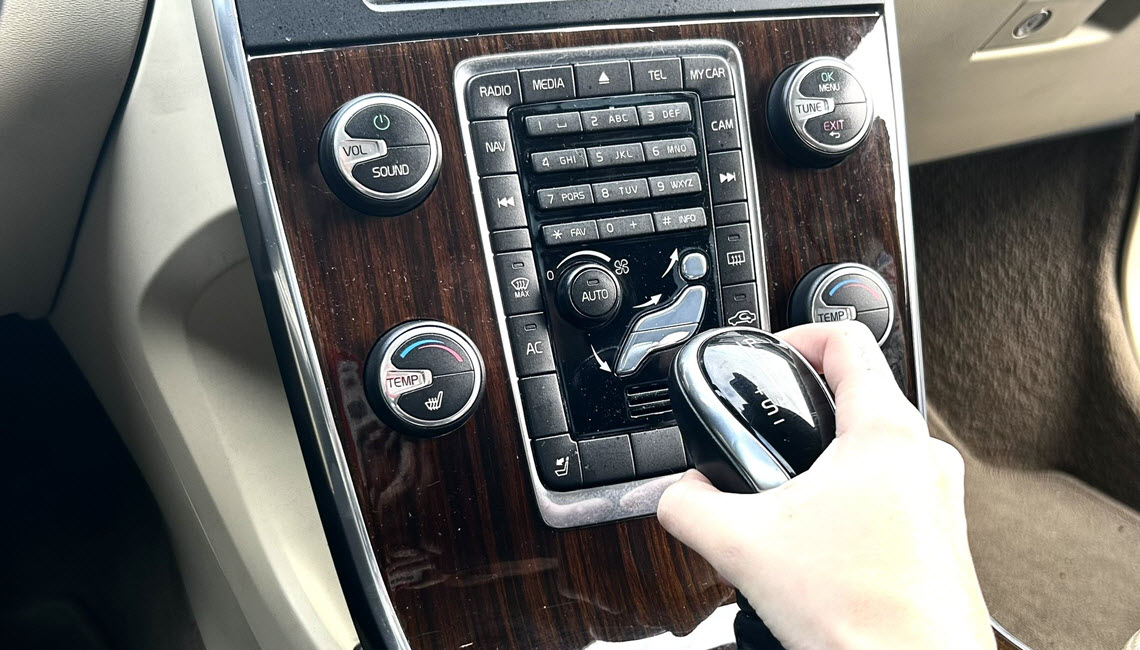
Volvo’s automatic transmissions in their models are known for their quality and durability. However, like any other mechanical system, they can fail. If you’re experiencing problems with your Volvo’s automatic transmission, it’s important to know what to look for in order to diagnose the failure.
The Most Common Symptoms of a Volvo Automatic Transmission FailureAlthough automatic transmission failures are relatively common, there are a few symptoms that are most commonly associated with this type of problem.
One of the most common symptoms is a delay in the engagement of the transmission when the vehicle is put into gear. This can often be accompanied by a grinding noise when the transmission does finally engage.
Another common symptom [...]
]]>
Volvo’s automatic transmissions in their models are known for their quality and durability. However, like any other mechanical system, they can fail. If you’re experiencing problems with your Volvo’s automatic transmission, it’s important to know what to look for in order to diagnose the failure.
The Most Common Symptoms of a Volvo Automatic Transmission Failure
Although automatic transmission failures are relatively common, there are a few symptoms that are most commonly associated with this type of problem.
One of the most common symptoms is a delay in the engagement of the transmission when the vehicle is put into gear. This can often be accompanied by a grinding noise when the transmission does finally engage.
Another common symptom is a loss of power when the vehicle is being driven. This can often be accompanied by an abnormal noise coming from the engine bay. If either of these symptoms is present, it is important to have the vehicle checked by a qualified mechanic as soon as possible to avoid further damage to the transmission.
How to Diagnose a Transmission Failure in Your Volvo
There are a few different ways that you can diagnose a transmission failure in your Volvo. One of the first things that you will want to do is check the fluid level in the transmission. If the fluid level is low, then it is likely that there is a leak somewhere in the system. You will also want to check the color of the transmission fluid. If it is dark and murky, then it may be time to have the fluid flushed and replaced.
Another thing to look for is strange noises coming from the transmission. If you notice any grinding, whining, or humming noises, then there may be an issue with the gears or bearings inside the transmission. In some cases, these noises can be caused by low transmission fluid levels.
If your Volvo has an automatic transmission, then you may also notice that it is slipping out of gear or having trouble shifting gears. This can be a sign of a serious problem with the transmission, and it is important to have it checked out by a professional as soon as possible.
If you think that your Volvo may have a transmission failure, then it is important to take it to a qualified mechanic or dealership as soon as possible. They will be able to diagnose the problem and make sure that your car is safe to drive.
Tips for Getting Your Volvo Serviced Quickly and Affordably
When you need to get your Volvo serviced, you want to do it quickly and affordably. Here are some tips to help you accomplish both:
- Schedule an appointment in advance. This will help ensure that you can get in and out quickly.
- Know what services you need ahead of time. This way, you can inform the technician and they can work on your car while you wait.
- Take advantage of any coupons or discounts that may be available. This can help you save money on the services you need.
- Ask for an estimate before the work is done. This way, you’ll know how much the service will cost and can budget accordingly.
- Be sure to ask about any warranty that may be available. This can protect you in case something goes wrong after the service is completed.
Glenwood Foreign Car Performs Regular Maintenance for Your Volvo’s Transmission
Volvos are known for their quality, durability, 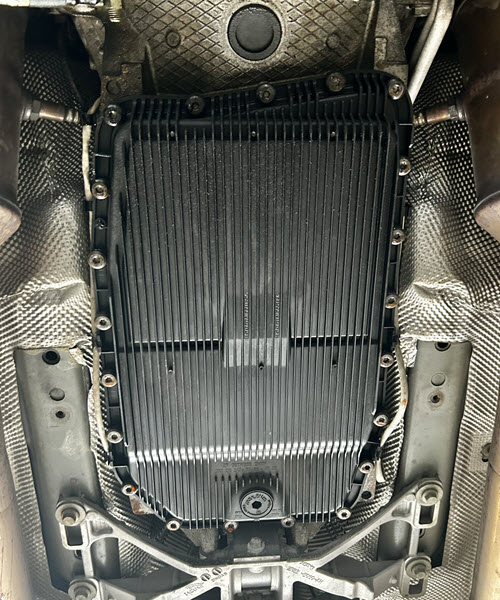 and safety. But even the best car needs regular maintenance to keep it running smoothly. That’s why it’s important to have your Volvo’s transmission serviced regularly.
and safety. But even the best car needs regular maintenance to keep it running smoothly. That’s why it’s important to have your Volvo’s transmission serviced regularly.
It is important to have the transmission fluid changed every 30,000 miles or so. This will help to prevent major problems down the road. It’s also a good idea to have the transmission filter replaced at the same time.
If you wait too long to have your Volvo’s transmission serviced, you could be facing costly repairs or even a complete replacement. We’d rather see you for maintenance than repairs! So, don’t put it off any longer. Schedule a service appointment today. Visit us from the nearby towns and communities of Upper Makefield Township, Yardley, Newtown, and Morrisville, PA.
]]>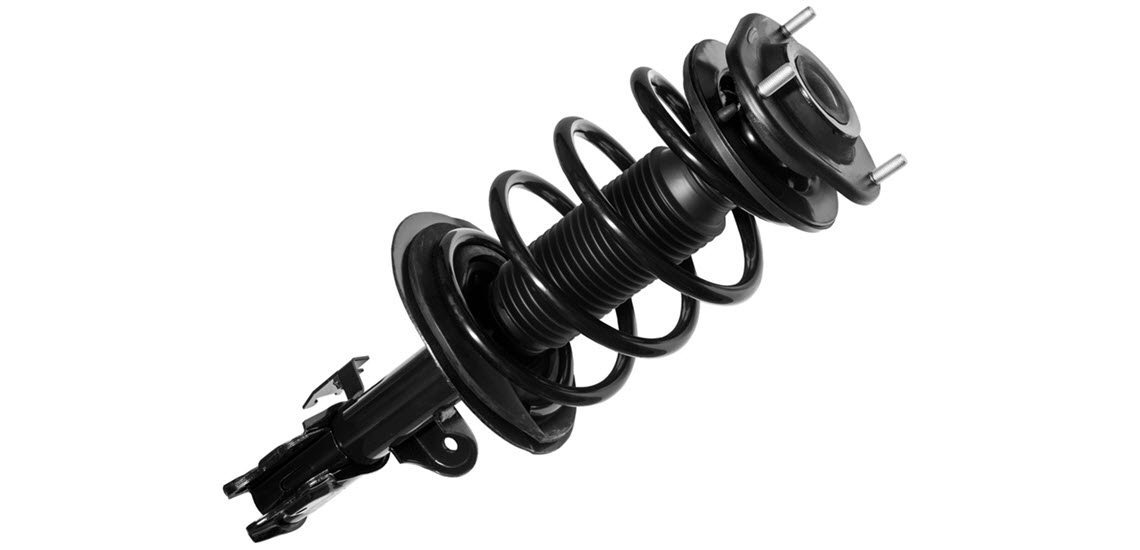
Volvos have long been known for their reliability and smooth ride. That reputation has only been bolstered in recent years by the introduction of new models with cutting-edge technology and sleek design. But what really sets Volvos apart is their commitment to safety. Every Volvo is equipped with a host of safety features, from reinforced steel frames to airbags and anti-lock brakes. In fact, Volvo has been at the forefront of safety innovation for decades, and their cars are some of the safest on the road today.
Of course, once the vehicle is in the hands of the customer, maintaining that safety becomes their responsibility. It is important to know about the safety of different aspects of your vehicle, including things you might not immediately associate with safety, [...]
]]>
Volvos have long been known for their reliability and smooth ride. That reputation has only been bolstered in recent years by the introduction of new models with cutting-edge technology and sleek design. But what really sets Volvos apart is their commitment to safety. Every Volvo is equipped with a host of safety features, from reinforced steel frames to airbags and anti-lock brakes. In fact, Volvo has been at the forefront of safety innovation for decades, and their cars are some of the safest on the road today.
Of course, once the vehicle is in the hands of the customer, maintaining that safety becomes their responsibility. It is important to know about the safety of different aspects of your vehicle, including things you might not immediately associate with safety, like your vehicle’s shocks.
What are shocks?
Shocks are an important part of a car’s suspension system. They help to absorb the impact of bumps and potholes, providing a smoother ride for both driver and passengers. There are two types of shocks: struts, which combine the shock absorber and coil spring into one unit, and separate shocks, which are mounted separately from the coil spring. Shocks are usually located at the corners of the car, and they work in conjunction with the springs to provide a comfortable ride.
Over time, shocks can wear out and become less effective. When this happens, the ride will become rougher and the car may even bounce. Shocks typically last between 50,000 & 100,000 miles, but they can wear out sooner if the vehicle is driven on rough roads or frequently used to tow heavy loads. If you suspect that your car’s shocks are worn out, it’s important to have them checked by a trained mechanic. Otherwise, you may continue to experience a jarring ride and eventual damage to your suspension system.
Dangers of Bad Shocks
When driving, it’s important to have a smooth ride. That’s why shocks are so important – they help to absorb bumps and potholes, providing a comfortable ride for passengers. However, if shocks are worn out, they can’t do their job properly. This can lead to a jarring ride, and can also cause other problems.
It can be dangerous to drive on bad shocks. When they are worn out, the car rides rough and the tires can lose contact with the road, which can lead to a loss of control. In addition, bad shocks can cause the car to bottom out, which can damage the suspension and make the ride even rougher. They can also cause premature wear on other parts of the vehicle, such as the tires and suspension. As a result, it’s important to keep an eye on your shocks, and replace them if they start to show signs of wear. By doing so, you can help ensure a safe and comfortable ride for yourself and your passengers.
Maintaining Your Shocks
Maintenance is important for shocks for a number of reasons. First, it helps to ensure that the shock is properly lubricated, which reduces friction and wear. Second, it helps to remove any dirt or debris that may have accumulated on the shock, which can interfere with its performance and cause premature failure. Finally, regular maintenance can help to identify any potential problems with the shock before they cause serious damage — sometimes even before you’ve felt the effects of their failure when driving. By taking care of your shocks, you can help to extend their life and ensure that they continue to perform at their best.
Glenwood Foreign Car is Here to Help
If you suspect your shocks are going bad, it is 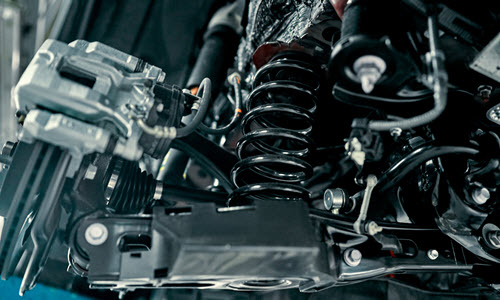 important to have them inspected as soon as possible in order to prevent any further damage to other components, like your suspension or tires. By addressing the problem early, you can save yourself money and the frustration of a more extensive repair.
important to have them inspected as soon as possible in order to prevent any further damage to other components, like your suspension or tires. By addressing the problem early, you can save yourself money and the frustration of a more extensive repair.
If you live in or around Upper Makefield Township, Yardley, Newtown, or Morrisville, PA, Glenwood Foreign Car is your go-to for European vehicle repairs. We have been serving our community since 1977 with quality, reliable maintenance and repairs and unparalleled customer service. Call or stop by today to learn more about how we can help you.
]]>
Your Volvo relies on several fluids to function effectively. As a result, fluids play a significant role in your car’s health. While some fluids help cool your Volvo’s engine and other vehicle components, other fluids provide lubrication for moving vehicle parts.
The fluids protect the moving parts from friction, which could damage your transmission or engine. Some essential fluids include brake fluid, steering fluid, engine coolant, and engine oil. These fluids must be changed regularly as they degrade over time, but how do you know the fluid flush your Volvo needs the most?
Types of Volvo Fluids and When to Flush ThemHere are some of the most important fluids you need for the optimal performance of your Volvo and when you need to change them.
Transmission [...]]]>
Your Volvo relies on several fluids to function effectively. As a result, fluids play a significant role in your car’s health. While some fluids help cool your Volvo’s engine and other vehicle components, other fluids provide lubrication for moving vehicle parts.
The fluids protect the moving parts from friction, which could damage your transmission or engine. Some essential fluids include brake fluid, steering fluid, engine coolant, and engine oil. These fluids must be changed regularly as they degrade over time, but how do you know the fluid flush your Volvo needs the most?
Types of Volvo Fluids and When to Flush Them
Here are some of the most important fluids you need for the optimal performance of your Volvo and when you need to change them.
Transmission Fluid Flush
Over time, grime and dirt may accumulate in your transmission fluid, causing clogs inside your Volvo’s transmission system. Clog formation prevents the circulation of the transmission fluid, thereby hindering the proper lubrication and cooling of the transmission.
While your manufacturer may not recommend transmission fluid flush until your Volvo covers between 70,000 to 100,000 miles, it is best to change the transmission fluid after 30,000 to 50,000 miles. However, if you drive on rough terrains or make a frequent stop and start, you should consider changing the transmission oil after 30,000 miles.
Different manufacturers have varying specifications of the transmission fluid that should be used. Ensure you make your finding and use only the manufacturer’s recommendation to maximize the longevity of your Volvo’s transmission and avoid causing irreparable damage.
Engine Oil Flush
Your engine oil protects your Volvo’s engine and should be regularly checked to know if it needs to be changed. The oil warning light will illuminate if the oil level is low. When the oil becomes dark or gets contaminated with dirt, this is another indication that your engine oil needs to be flushed. Clean engine oil has an amber color and may look a bit translucent. Running your engine on low or contaminated oil may affect the proper functionality of your Volvo’s engine.
Power Steering Fluid Flush
The Volvo’s power steering takes a lot of stress off the driver by assisting in steering the vehicle using a hydraulic device powered by the engine. However, the power steering is exposed to heat from the engine and cold temperatures during winter, which may cause the breakdown of your power steering fluid.
Driving your Volvo with a low or degraded power steering fluid can damage your steering gear seals, hoses, and pumps. It could cause your power steering to wear down and fail. It is recommended that you change your Volvo’s power steering fluid after covering 50,000 to 70,000 miles.
Brake Fluid Flush
Regularly changing your brake fluid is critical to guarantee that the break works whenever you engage it. Your Volvo’s brake fluid may gather dirt after an extended period of use, affecting the proper functioning of your brakes.
Aside from getting contaminated with specks of dirt, water can also get into your brake fluid due to condensation. The presence of water in your brake fluid may prevent your break from functioning effectively.
Your brake fluid is usually translucent or clear and may turn brown or black whenever it needs to be flushed. Depending on the vehicle’s age, it is advisable to flush your brake fluid after covering 24,000 to 36,000 miles or two to three years.
Fuel Injection Fluid Flush
Your Volvo’s fuel injection system is a critical part of your car and may cause poor gas mileage when faulty. Therefore, it is vital to clean your fuel injection system after covering 35,000 to 50,000 miles for more efficient fuel usage.
Glenwood Foreign Car: European Automotive Service Experts
If you need the services of a trusted vehicle repair  and maintenance service provider, Glenwood Foreign Car offers unparalleled repair of different European-made vehicles, including your Volvo. We have an experienced team of trained and certified technicians.
and maintenance service provider, Glenwood Foreign Car offers unparalleled repair of different European-made vehicles, including your Volvo. We have an experienced team of trained and certified technicians.
We are located in Morrisville, PA, and we are also the go-to European shop for drivers in Upper Makefield Township, Yardley, and Newtown. Please call or visit us at our shop today to set an appointment with our specialists!
* Volvo S90 Car image credit goes to: teddyleung.
]]>
The Volvo brand is one of the oldest in automotive history and has provided comfort and luxury to drivers worldwide. However, drivers have complained about having VVT issues more often than not. VVT is an acronym for Variable Valve Timing.
The variable valve timing system is a system that uses new and advanced electronic technology to apply variable electronic signals coming from a variable valve timing solenoid. Simply put, the VVT system opens and closes a valve to help your engine work harder and smarter.
Today, all cars utilize a VVT system as part of a means to achieve high performance. The VVT system found in your Volvo is unique in its entirety and cannot be found in any other car brand. If the VVT system fails, the [...]
]]>
The Volvo brand is one of the oldest in automotive history and has provided comfort and luxury to drivers worldwide. However, drivers have complained about having VVT issues more often than not. VVT is an acronym for Variable Valve Timing.
The variable valve timing system is a system that uses new and advanced electronic technology to apply variable electronic signals coming from a variable valve timing solenoid. Simply put, the VVT system opens and closes a valve to help your engine work harder and smarter.
Today, all cars utilize a VVT system as part of a means to achieve high performance. The VVT system found in your Volvo is unique in its entirety and cannot be found in any other car brand. If the VVT system fails, the engine in your Volvo will become unable to do strenuous work like pull a trailer or go up and down a hill. Sometimes, the engine will start to fail, too, and overall performance will reduce significantly.
Causes of VVT system failure in Volvo
Failure of the VVT system of your Volvo is usually due to a lack of routine maintenance. A basic maintenance routine should involve the frequent change of the engine oil. Over time, as you continue to use your car, the engine oil gets contaminated with specks of dirt and sludge, and these particles are large enough to block the screen on the solenoid.
When the VVT solenoid becomes jammed by contaminants, it becomes unable to serve as a medium to transfer signals to the engine. Hence, the VVT system will start showing signs of failure, and the engine will eventually fail.
Another common reason for VVT system failure is the natural wear and tear of the solenoid or VVT switch. The solenoid might develop faults due to constant use and give way. When the controller and solenoid start failing, contact a Volvo expert to inspect and replace them.
The simple solution is to practice a tight maintenance schedule for your Volvo. Change your engine oil frequently and cover it tightly to prevent oil contamination.
Symptoms of VVT System Failure in Volvo
- Check Engine Light is on: The VVT system is an integral part of the Engine Control Unit (ECU). Hence, the engine is affected whenever the VVT develops a fault. The check engine light comes on for several other reasons, so that is why it is important to visit a professional mechanic to help you examine the issue to find the root cause.
- Rough Engine Idle: The VVT system is activated only when the engine is at high RPM or the load on the engine is too much. When the VVT engine becomes faulty, the VVT solenoid malfunctions and introduces additional engine oil to the gears, which causes the engine to idle roughly. Call for help immediately and have the issue rectified to prevent damage to other parts.
- Reduction in Fuel Economy: One of the primary functions of the variable valve timing system is to ensure that the valve opens and closes at the right time to optimize engine performance and reduce fuel usage. When the VVT system starts failing, the intake and outtake valves will begin opening and closing at wrong intervals and cause fuel economy to decrease significantly. You’ll notice that your car consumes fuel faster than usual, and you’ll spend more on gas and have incorrect emission ratios.
The Professionals of Glenwood Foreign Car Can Fix Your VVT Issues
The VVT system is a delicate part of your Volvo located near the camshaft and should only be repaired by an experienced mechanic. Glenwood Foreign Car is the  ultimate solution to all problems with your European vehicles.
ultimate solution to all problems with your European vehicles.
We provide high-quality repair and services for all European vehicles, including your Volvo, at affordable prices. We are a Bosch-certified center with the required skills to diagnose, maintain, and repair all the faults in your Volvo. You can quickly locate us at our shops in Morrisville, PA, and we have provided quality service to drivers in the surrounding areas of Upper Makefield Township, Yardley, and Newtown. Call us today to schedule repairs for your Volvo or to speak with a mechanic about our available service and maintenance plans.
]]>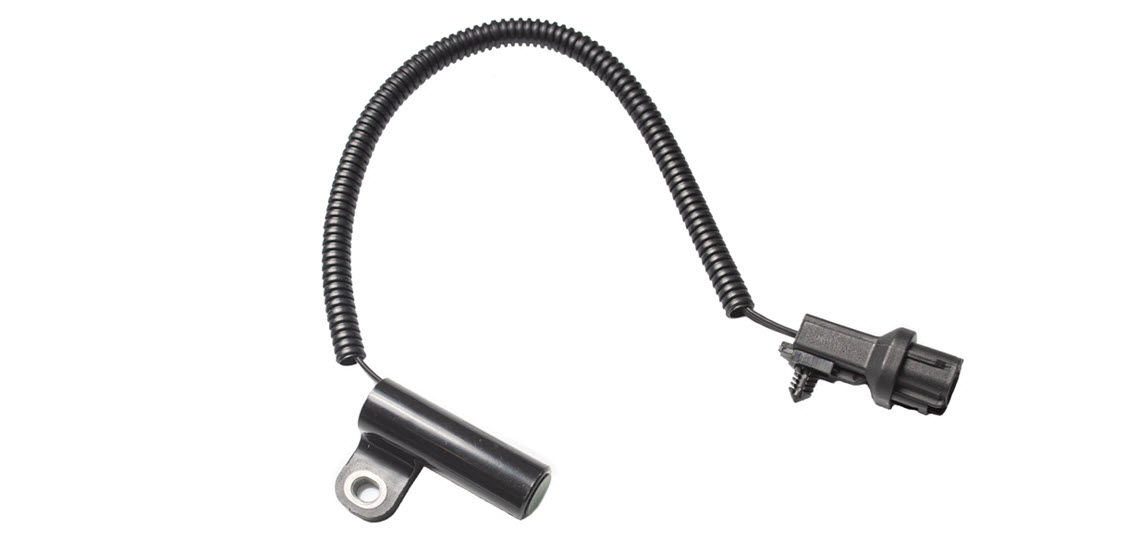
The Crankshaft Position Sensor, or CPS, in your Volvo plays an important role to ensure the ignition fires correctly against the position of the crankshaft. This is one of the features in a Volvo that is meant to ensure the car’s engine offers optimum performance. This will ultimately affect your driving experience in a car that is one of the most comfortable rides to experience.
To correct a CPS malfunction in your car, you’ll need the help of a Volvo specialist. But there are some things you’ll need to consider before taking your Volvo in for CPS replacement. Let’s break down the CPS and why you need to be careful about who helps you to replace it.
The CPS in your Volvo is located in the cylinder head [...]
]]>
The Crankshaft Position Sensor, or CPS, in your Volvo plays an important role to ensure the ignition fires correctly against the position of the crankshaft. This is one of the features in a Volvo that is meant to ensure the car’s engine offers optimum performance. This will ultimately affect your driving experience in a car that is one of the most comfortable rides to experience.
To correct a CPS malfunction in your car, you’ll need the help of a Volvo specialist. But there are some things you’ll need to consider before taking your Volvo in for CPS replacement. Let’s break down the CPS and why you need to be careful about who helps you to replace it.
The CPS in your Volvo is located in the cylinder head in the engine right opposite the timing rotor. This timing rotor is attached to the engine’s camshaft. The car uses its internal computer system to determine the camshaft angle before triggering the ignition to fire in relation to that angle. The CPS is the component that provides the vehicle’s computer with the signal to compute the angles of the camshaft. So when the CPS malfunctions, you Volvo is likely to develop some problems.
Causes of CPS Malfunction
There are several reasons why your Volvo’s CPS may become damaged and need replacement. Top on this list of reasons is the usual wear and tear that most mechanical parts are exposed to. After driving your car for a long time, it is inevitable that some parts will need replacement and the CPS is no exception. That said, there are some factors that can shorten the CPS lifespan. For instance moisture from humidity in the engine compartment can affect the CPS. This will increase chances of the CPS malfunctioning. Buildup of oil and grease in the engine can also cause the CPS to fail.
Signs of CPS Failure
When the CPS in your Volvo is due for replacement, there are a few signs that you’ll notice. The first of these signals is that the car will have trouble starting. The CPS helps to align the engine and ignition timing to facilitate the burning of fuel to power your car. When the CPS has an issue this timing is off and so the engine can fail to start because the ignition will be happening at the wrong time. This can be frustrating especially in a car that’s touted as reliable as in Volvo’s case.
CPS failure also causes significant performance issues, from the engine losing power gradually or even suddenly to misfiring and difficulty shifting gears, and worse still, your car may stall. The check engine light will also come on your dashboard when the CPS has problems. This is the point where you’ll need a reliable Volvo specialist.
Things to Look for in a Volvo Specialist
As is the case with most European vehicle models, the Volvo also needs specialized care. This is why you can’t simply go to any auto-mechanic in Morrisville to get your CPS replacement.
You should look out for certain things before going to a specific auto-mechanic. Some of these bullet points include reliability, availability, good workmanship, and professional service. The factors that you’ll need to prioritize include manufacturer certification, professional certification and Volvo experience. A manufacturer-certified technician will not only repair your Volvo to the manufacturer’s standards but they will also be likely to have original parts known as OEM. The last thing you want is to have generic replacement parts that will break down much faster than the manufacturer recommended parts, costing you more in the long run.
With professional certification, you can also trust that your Volvo specialist knows what they are doing. Before going for a CPS replacement, your car will need proper diagnosis using advanced technology that only a certified technician may know to use correctly. It also helps when your technician is well-versed with all matters Volvo. This will help them get the job right the first time and save you from the hassle of going back to the garage for the same thing over and over.
Glenwood Foreign Car for CPS Replacement in Morrisville
Glenwood Foreign Car is the leading service, maintenance, and repair auto-shop for  all foreign vehicle brand owners in Upper Makefield Township, Yardley, Newtown and Morrisville, PA. We are a Bosch certified service provider whom you can trust for both quality services and replacement parts on your European model car. Call us today if you need CPS replacement on your Volvo in the area. We are happy to help!
all foreign vehicle brand owners in Upper Makefield Township, Yardley, Newtown and Morrisville, PA. We are a Bosch certified service provider whom you can trust for both quality services and replacement parts on your European model car. Call us today if you need CPS replacement on your Volvo in the area. We are happy to help!
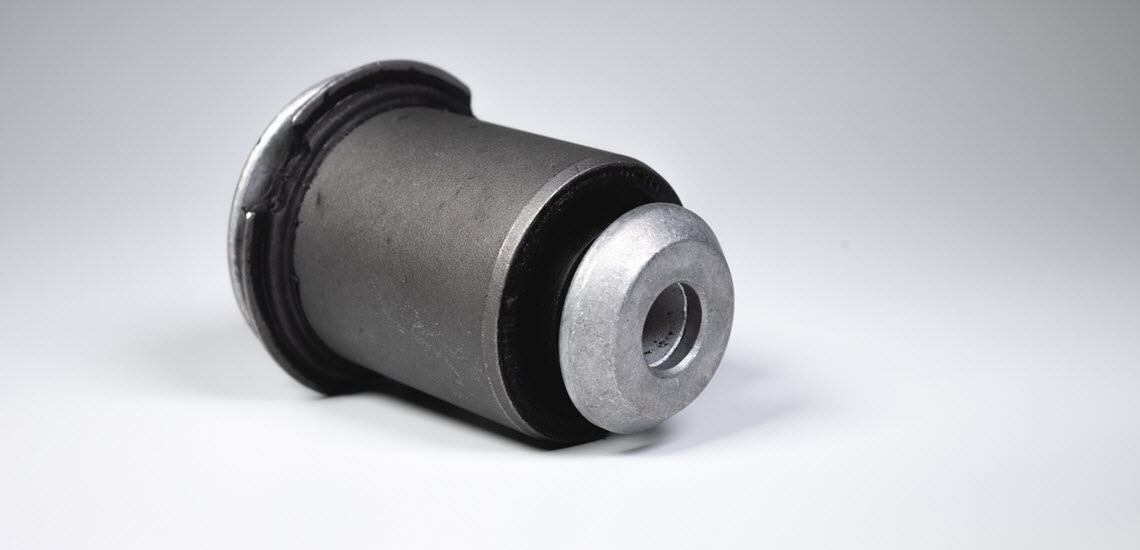
To ensure that you get a smooth ride, Volvo and other car brands use things known as bushings, which are placed in many different spots along a car’s suspension system. These are small rubber or polyurethane components, whose purpose is to absorb vibration and prevent metal-on-metal contact as you’re driving down the road.
Usually, they’re very durable, but as with anything else, age and prolonged use will eventually cause them to wear out and need replacement. In this article, we will discuss some of the common signs you can watch out for that may indicate your Volvo’s suspension bushings are failing. We will also give you some tips on how to fix this problem and increase the longevity of your bushings.
Symptoms of Bushing FailureBecause bushings provide padding [...]
]]>
To ensure that you get a smooth ride, Volvo and other car brands use things known as bushings, which are placed in many different spots along a car’s suspension system. These are small rubber or polyurethane components, whose purpose is to absorb vibration and prevent metal-on-metal contact as you’re driving down the road.
Usually, they’re very durable, but as with anything else, age and prolonged use will eventually cause them to wear out and need replacement. In this article, we will discuss some of the common signs you can watch out for that may indicate your Volvo’s suspension bushings are failing. We will also give you some tips on how to fix this problem and increase the longevity of your bushings.
Symptoms of Bushing Failure
Because bushings provide padding for nearly every part of a suspension system, there are many different ways that their failure will present itself. Sometimes it can be hard to tell if the component itself is failing or if the bushing is because the symptoms will be largely the same. However, there are some signs. If you see any of these listed below, you should contact your trusted Volvo mechanic as soon as possible to bring your vehicle in for a professional inspection and diagnosis.
- difficult steering
- steering that’s much looser than usual
- rattling or squeaking sounds while driving, especially while driving over rougher terrain
- continuous vibrating while you’re driving down the road
- uneven tire wear
- clunking noises while braking or turning
Methods to Fix Bushing Failure
Particularly in older vehicles, bushings will fail because they dry out. In those cases, simply taking the vehicle to a mechanic to be lubricated may clear up any suspension problems you’re having. This problem can also occur in newer Volvos, though it is a little less common. Most newer cars are outfitted with bushings that are supposed to remain permanently lubricated, but even these bushings will typically need to be rejuvenated at least once or twice during their lifetime.
However, sometimes the bushing will need to be replaced. Depending on where the failing part is located and how easy it is for a mechanic to access the bushing, it may be possible for them to replace just the bushing. In many cases, though, a mechanic will likely suggest that the entire part be replaced.
This is partially because in some cars, control-arm bushings can’t be replaced separately from the rest of the part, so a mechanic will need to replace the entire part. Another reason is that typically, if a bushing has failed, the part it’s connected to has probably been damaged in some way and is not likely to last much longer. That’s why it may be better to just replace it all in one go rather than replacing the bushing only for the customer to have to come back a short time later to get the other part replaced, too.
After inspecting your vehicle, your mechanic will be able to determine which method is the best choice for the situation.
Preventing Bushing Wear
Bushings are incredibly durable. They have to be, since they are under near-constant pressure. The rate at which they deteriorate is largely dependent on the way you choose to treat your vehicle. Some ways that you can help promote bushing longevity are:
- Get regular repairs and maintenance to avoid oil and other fluid leaks, which can cause bushings to corrode.
- Avoid driving over rough terrain or unpaved roads.
- Avoid excessive exposure to heat or cold.
Get Your Volvo Suspension Problems Repaired at Glenwood Foreign Car
The experienced auto mechanics at Glenwood Foreign Car are 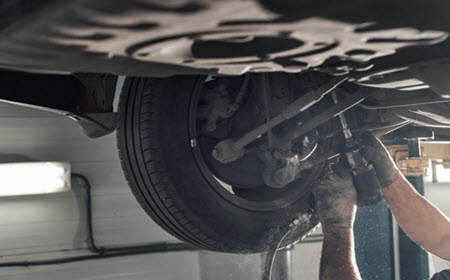 happy to help you out with your Volvo’s bushing issues or any other troubles you may be having. Since 1977, we’ve been providing quality service to our customers in Upper Makefield Township, Yardley, Newtown, and Morrisville, Pennsylvania. We specialize in many foreign car brands, including Volvo, Porsche, Audi, Mercedes Benz, BMW, and Smart.
happy to help you out with your Volvo’s bushing issues or any other troubles you may be having. Since 1977, we’ve been providing quality service to our customers in Upper Makefield Township, Yardley, Newtown, and Morrisville, Pennsylvania. We specialize in many foreign car brands, including Volvo, Porsche, Audi, Mercedes Benz, BMW, and Smart.
If you’d like to learn more about our services or bring your vehicle in for repair, maintenance, or inspection, please give us a call today or stop by to visit us and speak to our technicians. We are happy to meet you and earn your business.
]]>
Issues with the steering column are incredibly nerve-wracking. The thought of being unable to control your car is something that you’d see shown in horror movies. Still, the reality is that without the proper care, your Volvo too can have unexpected steering issues, endangering both yourself and others on the road. It can happen to anybody, which is why it’s essential to keep an eye out for the clue that might indicate that there are issues with how the Volvo is driving.
Fortunately, some symptoms stand out before the problem ever gets to the point that lives are in danger. We’ll examine those symptoms and how they can be picked up on before an accident occurs.
Strange Sounds While SteeringA noticeable sign of a steering column issue is [...]
]]>
Issues with the steering column are incredibly nerve-wracking. The thought of being unable to control your car is something that you’d see shown in horror movies. Still, the reality is that without the proper care, your Volvo too can have unexpected steering issues, endangering both yourself and others on the road. It can happen to anybody, which is why it’s essential to keep an eye out for the clue that might indicate that there are issues with how the Volvo is driving.
Fortunately, some symptoms stand out before the problem ever gets to the point that lives are in danger. We’ll examine those symptoms and how they can be picked up on before an accident occurs.
Strange Sounds While Steering
A noticeable sign of a steering column issue is a grinding or clicking noise while steering. It’s an audible clue and one that can be picked up on quickly while on the road. They can range from a grinding to a squealing noise while behind the wheel, especially when taking sharp turns.
Because it’s a steering issue, it’s best to get it checked out as soon as possible to ensure that no harm will come to the driver or anyone else who may be on the road in the event of an accident.
Steering Wheel Won’t Return to Center
Another common sign of a steering column issue is if the steering wheel won’t center itself upon completing a turn. It may come close, but there will be a noticeable degree change from the center. It’s not only the sign of a potential steering column issue but can also make it awkward to grip the wheel, making it a problematic issue as well. This might make it challenging to navigate the steering wheel, which can be frustrating and dangerous if it affects your driving and is combined with other outside factors such as weather.
Steering Wheel Tilt Malfunction
Most modern Volvo’s with power steering can change the angle of the steering wheel. It’s meant to accommodate heights and sizes, making it more comfortable to drive the vehicle. An issue with the steering column may cause the tilt to malfunction. This is a clue that can be easily missed.
Not everyone will routinely change their steering wheel tilt as they would their seat, as it’s something that tends to be altered to a lesser degree. It would be better to occasionally check on the wheel tilt function, especially if your Volvo is experiencing any of the other symptoms on the list.
Steering Wheel is Hard to Turn
Another symptom of a steering column issue is when turning the wheel starts to become problematic. This one can be a bit tricky, as steering issues can result from other problems with your Volvo.
The cause for these issues can only be determined by a professional, so it’s essential to get the Volvo looked at when this symptom comes up to ensure the cause of the issue and how to fix it.
Rough Handling
In some cases, there can be issues with how the car handles itself. The wheel might be resisting its while turning, which is especially noticeable when a Volvo has power steering. It’s undoubtedly an inconvenient symptom. It’s frustrating when the vehicle feels as if it isn’t driving as it should, especially when the car is a recent model and meant to be more reliable. As with other symptoms, this one can also result from other issues with the vehicle, such as issues with tires or rims.
Excellent Care With Glenwood Foreign Car
At Glenwood Foreign Car, we  pride ourselves on providing quality care for all of our customers. Located in Yardley, PA, we’ve been in service since 1977 and have been proud community members for decades. Trusted by the surrounding community, including areas such as Newton, Morrisfield, and Upper Makefield Township, we pride ourselves on our ability to keep European vehicles on the road for a reasonable price.
pride ourselves on providing quality care for all of our customers. Located in Yardley, PA, we’ve been in service since 1977 and have been proud community members for decades. Trusted by the surrounding community, including areas such as Newton, Morrisfield, and Upper Makefield Township, we pride ourselves on our ability to keep European vehicles on the road for a reasonable price.
We are a Bosch Certified Service Center, so you can be sure that the care you’ll receive here will be the best and most cost-effective route you can go. We hope that if your Volvo or other European vehicles encounter a problem, that you’ll trust it’s care in our hands.
* Volvo Steering Wheel image credit goes to: huettenhoelscher.
]]>
The transfer case in your Volvo is the power behind your all-wheel or four-wheeled drive system. Known for reliability, the drive train system of a Volvo, which includes your transfer case and driveshafts, take power from your engine and transmission and divide it amongst all four wheels.
As a highly-engineered unit, if it is not maintained adequately, your transfer case could experience issues during its lifetime. To determine if your transfer case is healthy in your Volvo, let’s take a look at some of the symptoms and problems associated with a transfer case.
Typical Symptoms of a Failing Transfer CaseGrinding and rattling noises coming from under your car may be a definite sign your Volvo has a problem in the transfer case. The internal components of your [...]
]]>
The transfer case in your Volvo is the power behind your all-wheel or four-wheeled drive system. Known for reliability, the drive train system of a Volvo, which includes your transfer case and driveshafts, take power from your engine and transmission and divide it amongst all four wheels.
As a highly-engineered unit, if it is not maintained adequately, your transfer case could experience issues during its lifetime. To determine if your transfer case is healthy in your Volvo, let’s take a look at some of the symptoms and problems associated with a transfer case.
Typical Symptoms of a Failing Transfer Case
Grinding and rattling noises coming from under your car may be a definite sign your Volvo has a problem in the transfer case. The internal components of your transfer case include gears that Interact with one another to transfer power to your wheels. Each gear has teeth that can break off and become loose inside the case. When the teeth are gone, not only will the gears not be able to interact with one another, but the broken pieces will cause grinding or rattling noises, which may be heard inside the car while driving.
If you have an issue with a transfer case in your Volvo, a symptom that may show is the transmission not being able to shift gears. This can lead some to think they are having transmission failure, while the transfer case is the culprit.
If your car is experiencing transfer case issues, you may lose the ability of all or four-wheel drive. Once you lose this capability that your Volvo was designed for, you will begin to experience traction issues that were not present before the malfunction. The benefit of all-wheel drive vehicles is how well they perform in inclement weather. This ability can be lost if your transfer case fails.
Leaking fluid from your transfer case is a sign that something is wrong and can cause harm to your Volvo’s transmission and transfer case. Using seals and gaskets, fluid is held within the system to lubricate moving parts. Over time these gaskets and seals can become brittle with age, allowing fluid to pass through them and out of your system. This can also occur if your transfer case and transmission has overheated to the point that the seals and gasket were destroyed.
Once you lose the fluid that protects the system, further and more expensive damage can occur. A professional mechanic will be able to find the cause of oil leaks and make repairs before detrimental damage can occur.
Common Causes of Transfer Case Failures in Volvo
- Seal and gasket failures, as discussed above, may cause serious issues with your transfer case or indicate you already have damage.
- Under normal operating conditions with proper maintenance and care, your transfer case should last many years. One of the most common causes of early failure of components within your transfer case is not maintaining your Volvo’s recommended servicing from the manufacturer.
Sticking to the schedule and having professionals complete the necessary inspections can save you money in the long run over expensive repairs. Professional Volvo technicians are trained on how to protect your car and its working parts from an excess of wear to prevent failure.
- Another cause of transfer case failure is when a driver spins out on the pavement or one set of wheels on the pavement and others off the road in the dirt. Spinning tires in this way can create a tremendous amount of torque that can twist driveshafts and damage the components of your Volvos drive train, including the transfer case.
Inspection and Repair of Your Volvo’s Transfer Case
When it comes to your Volvo’s drivetrain,  Glenwood Foreign Car has the experience to take on any inspection and repairs your car needs to stay in top running condition. Serving Upper Makefield Township, Yardley, Newtown, and Morrisville, PA, our experience of Volvo’s and other top-of-the-line European cars has been building since 1977.
Glenwood Foreign Car has the experience to take on any inspection and repairs your car needs to stay in top running condition. Serving Upper Makefield Township, Yardley, Newtown, and Morrisville, PA, our experience of Volvo’s and other top-of-the-line European cars has been building since 1977.
Our ability to quickly diagnose and pinpoint solutions for your car’s needs will save you money by finding issues before they become larger costly problems. Contact Glenwood Foreign Car today to have your Volvo serviced or repaired.
]]>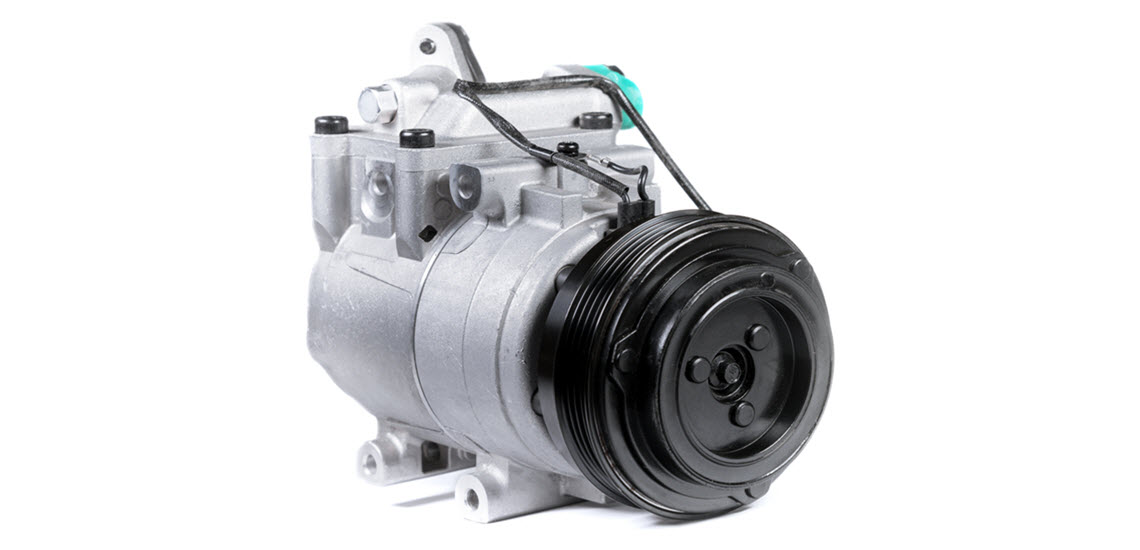
The HVAC system in your Volvo is responsible for maintaining a comfortable temperature in the cabin while driving. If your HVAC system suffers a breakdown, your comfort level can be greatly affected, especially during those hot, humid summer months. While there are many components within this system that can suffer from a malfunction, the compressor seems to be a common culprit.
Volvo stands for modern engineering, unsurpassed technology, and optimal comfort. However, these vehicles may suffer from mechanical malfunctions just as any other automobile. You should not have to compromise comfort due to a faulty compressor. An expert mechanic should inspect, diagnose, and repair such an issue as soon as possible. Let’s take a closer look into HVAC issues in the article below.
Common Signs of an HVAC Compressor [...]]]>
The HVAC system in your Volvo is responsible for maintaining a comfortable temperature in the cabin while driving. If your HVAC system suffers a breakdown, your comfort level can be greatly affected, especially during those hot, humid summer months. While there are many components within this system that can suffer from a malfunction, the compressor seems to be a common culprit.
Volvo stands for modern engineering, unsurpassed technology, and optimal comfort. However, these vehicles may suffer from mechanical malfunctions just as any other automobile. You should not have to compromise comfort due to a faulty compressor. An expert mechanic should inspect, diagnose, and repair such an issue as soon as possible. Let’s take a closer look into HVAC issues in the article below.
Common Signs of an HVAC Compressor Failure
When your compressor is operating normally, it should be very quiet. If you start to hear various noises like grinding or squealing, you may have an HVAC problem. It could mean that the compressor is suffering from a break down or that the bearings have seized and stopped moving.
The temperature inside the cabin of your Volvo can be a strong indicator when it comes to a malfunctioning HVAC compressor. The temperature may continually drop or you may not be able to maintain a comfortable setting. If you notice inconsistent air conditioning, seek the advice of a professional.
Every HVAC compressor has a clutch. If the clutch breaks or can not be moved, the compressor will either run continuously or it will not run at all. Either way, the component has been compromised and will need expert attention to be repaired.
Potential Causes of a Compressor Failure
As you put more miles on your Volvo, it can succumb to the issues that arise from normal wear and tear. When your vehicle ages, the blower motor may simply give out. Extended wear and missed routine maintenance can also lead to a compressor or blower malfunction.
Overheating of the resistor motor is a common issue among Volvos. This can be caused by an improper measurement taken during the initial engineering process in the manufacturer’s factory. This may cause the HVAC blower to malfunction, thus needing immediate attention.
Ways to Prevent a HVAC Compressor Malfunction
- Stay vigilant and watch for refrigerant leaks. These leaks can be the beginning of a serious problem with your HVAC system, including the compressor. Such leaks need to be fixed immediately to prevent a breakdown of the system.
- Take your vehicle in for routine maintenance and inspections. This is especially important before the summer season. Ask your mechanic to check the HVAC system to make sure it is ready for the hottest days of the year. Regular checkups are a great way to prevent potential problems in the future and ensure your comfort during your driving experiences.
Have your automobile checked out by a reputable service center if you notice any of the above mentioned symptoms. If you suspect an issue with the compressor, have it addressed as soon as possible to avoid more serious problems and uncomfortable operating conditions.
Trust the experts. Certain mechanical problems that arise with your Volvo need the attention of the experts. Your European vehicle has a specific set of service requirements and they may be too difficult to tackle on your own. Schedule an appointment to get to the bottom of a potentially damaging, mechanical malfunction.
Consult the Professionals for HVAC Issues
Our expert team at Glenwood Foreign Car has been servicing European 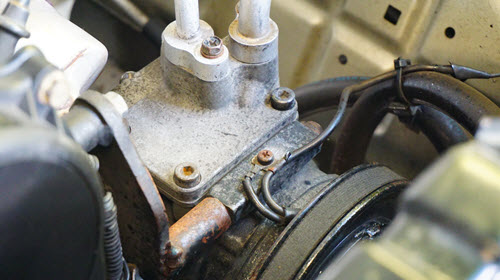 makes and models since 1977. These years of experience have made us the leading auto service center for the residents of Upper Makefield Township, Yardley, Newtown, and Morrisville, PA and the surrounding communities. We offer dealership-level knowledge and service without the dealership prices or extended wait times.
makes and models since 1977. These years of experience have made us the leading auto service center for the residents of Upper Makefield Township, Yardley, Newtown, and Morrisville, PA and the surrounding communities. We offer dealership-level knowledge and service without the dealership prices or extended wait times.
Your Volvo has a unique set of maintenance and service requirements. We are well-versed in these specifics and committed to providing the highest quality repairs. We offer friendly service and honest, open communication when it comes to your automobile. Our privately-owned business is here to keep your European vehicle running at peak performance. Whether you need a regularly scheduled tuneup or a diagnosis for a faulty HVAC system, Glenwood Foreign Car is here for you. Call us today.
]]>